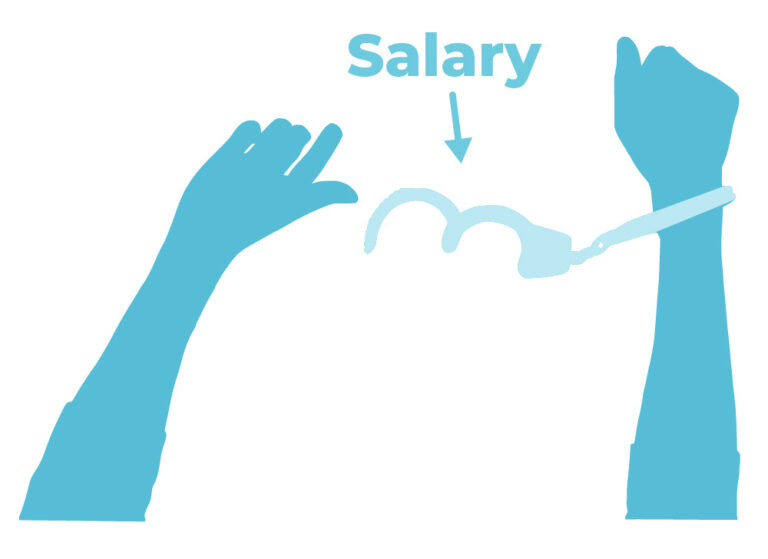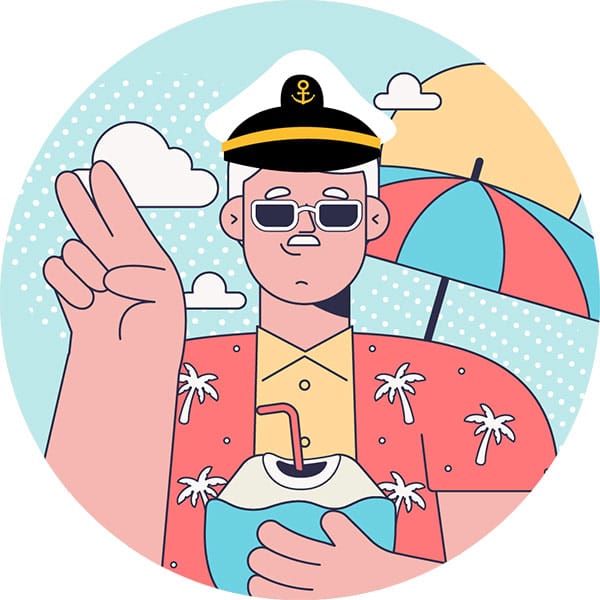Stay Sea Ready: PEMEs and Mandatory Biennial Medical Certification
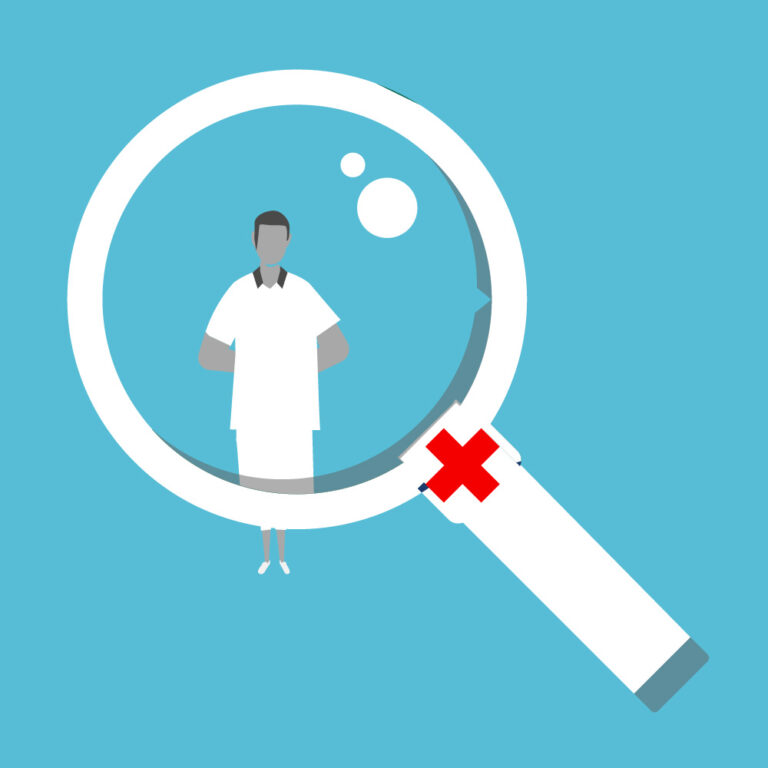
If you want to work and stay in yachting, your physical condition matters.
It’s a legal requirement that you can prove that you are physically able to do your job on board a superyacht — just as it is for any crew member on board a fishing vessel or a merchant ship.
In this article, we’ll look at how you can fulfil your medical obligations, and discuss two types of medical examination: pre-employment medical examinations and ongoing regulatory medical examinations.
Why all the fuss?
Now, you might think, you’re young, fit and healthy, so what’s the problem? Medical issues are for older people. You’re feeling fine and you’re able to do your job. Nothing to see here.
Not so fast.
From a regulatory point of view, it makes complete sense to monitor and certify the health of crew on board a superyacht. The safety of the boat, its guests and its crew depends on everyone being able to perform their job. The consequences of a sudden medical emergency among the crew for the safety of everyone else on board can range from a minor inconvenience to a major incident. And it could happen many hundreds of kilometres from the nearest hospital, during difficult sea conditions.
That’s why maritime regulators demand that all crew undergo a medical examination every two years with a doctor who is accredited to issue a medical certificate, such as the UK’s ENG1. This certificate assures your employer you’re fit to carry out your duties on board.
Good for your boss and good for you too
Not only that. Illness among crew can be very costly for yacht owners and operators. So they are becoming increasingly keen to identify problems in advance. Even ones that take years to manifest in the shape of serious symptoms.
For instance, high blood pressure on its own, while not great, isn’t perhaps a reason to stop you from carrying out your duties on board. But left unaddressed, and the issues high blood pressure can cause in the long run are very significant indeed.
And let’s not forget, a superyacht is often a pressure cooker environment. You think five or ten years on board won’t take a toll, even when you’re young? What about a 15- to 25-year career in the industry?
Besides, why wouldn’t you want a regular checkup that will probably identify any medical issues at an early stage?
In fact, regular medical examinations are a benefit to you too, as well as the yacht owner. Neither of you wants your body to be in substandard condition. Nor does either of you want a sudden medical surprise to land you in hospital… or worse.
So regular medical examinations make sense from all points of view.
The two types of medical for superyacht crew
There are two types of medical examination for superyacht crew, though they basically amount to the same thing:
1. Pre-employment medical exams (PEMEs)
2. Biennial mandatory exams (your ENG1 or equivalent certification).
PEMEs, as the name suggests, are done prior to you being offered an employment contract. Practically speaking, in most cases a valid ENG1 cert (or similar) will do the job. They are valid for two years, and provided your initial spell on board is covered by the cert, you should be good to go.
However, the insurers of ship owners and operators are offering their clients increased monitoring and examination opportunities to help them avoid costly claims relating to crew. This includes their own pre-employment medical examination services. So it’s not inconceivable that even with a valid ENG1 cert, you’ll be asked to undergo an additional pre-employment medical.
The main difference between a PEME and your mandatory biennial check-up is that the employer will cover the cost and arrange for a PEME, while you’ll be expected to keep your ENG1 up to date yourself and cover the associated costs.
Where to get a medical assessment and what the examinations cover
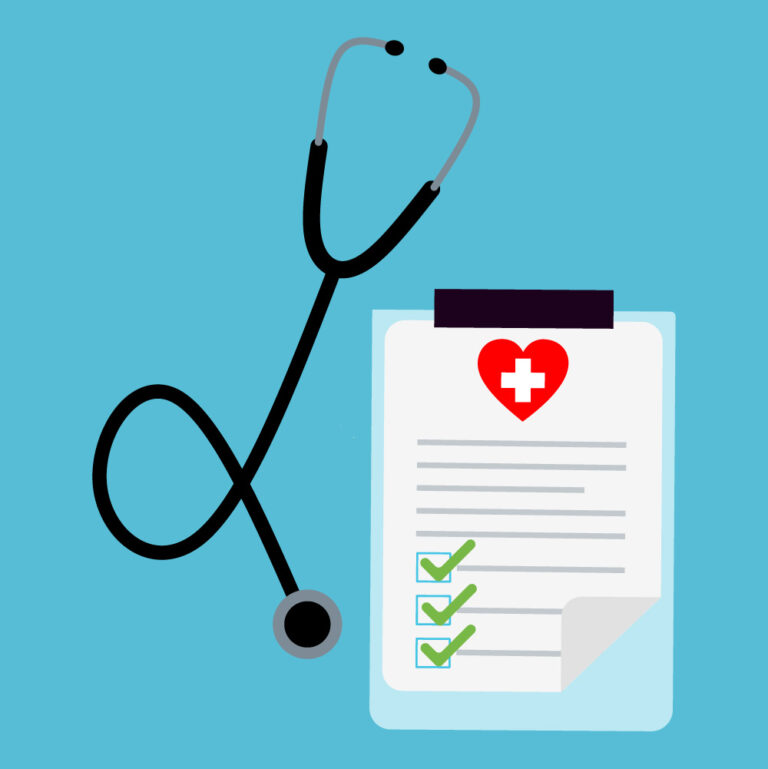
If you need to arrange an ENG1 or equivalent medical examination yourself, you’ll find plenty of places where medical professionals are accredited to conduct the exams and issue the certificates.
A good place to start is to ask your crewmates for a recommendation, especially if you’re looking to get a renewal in a place you’ve never visited before. Crewing agencies are another good source of reliable recommendations.
You should also be able to identify a reputable, approved doctor by searching online, especially in the key superyacht hubs like Antibes, Mallorca, Monaco, Imperia, Barcelona etc.
Lastly, the certifying bodies themselves, such as the UK’s Maritime and Coastguard Agency (MCA), will have lists of accredited doctors on their websites. You’ll also be able to find out on these websites which jurisdictions and regulatory bodies recognise each other’s medical certificates.
The cost of the exam will vary, depending on location and the certifying body. At the time of writing, the MCA has set the current ENG1 fee at £115.
You’ll need to bring along your passport and, if in the case of a mandatory re-examination, your previous medical certificate. It’s wise to check whether you will need any other documentation ahead of time. Likely, if you need glasses for reading, you’ll be asked to bring those with you too.
Typically, the medical examination will cover:
- Your height and weight (your Body Mass Index will be calculated)
- A standard eye test and a colour blindness test
- A hearing test
- Ear and throat evaluations and teeth/gums inspection
- Questions on your medical history, drinking habits, etc.
- A urine sample (to test kidney functionality and blood sugar)
- Reflex testing
- Listening to your heart and lungs
- Testing blood pressure and heart
Outcomes and responses
Chances are, you’ll fly through your exam and come out the other end with a stamp of approval. That’s particularly true of a standard mandatory medical, which will look no further than your suitability to do the job today.
However, insurance-driven PEMEs will take a longer view. How likely is your condition going to affect your long-term ability to do the job?
So while they’ll cover the same areas, the results might be interpreted differently. Make no bones about it, despite all the caring words about crew physical and mental health, insurer-driven medical exams are about the bottom line. If a costly health-related issue can be identified and prevented now, and that issue kept well away from the boat to begin with, that’s just good business.
There are, though, conditions that will prevent you from passing the medical, regardless of whether it’s a PEME or regular mandatory assessment. These include:
- Epilepsy
- Heart conditions
- Lung disease
- Severe deafness or difficulty to communicate by radio
- Diabetes treated with insulin (type 1 and type 2)
- Severe asthma
- Severe allergies
- Medication with side effects that could negatively affect your ability to do your job
- Alcohol- or drug-addiction problems
- Conditions that put you at increased risk of illness
A common failing
And then there’s the one condition that doesn’t sound bad, because it won’t harm your health, but is a common reason people fail a maritime-related medical exam: colour blindness.
As we mentioned, generally, you’ll come through an ENG1 or equivalent examination without any issues (Category 1). On rare occasions, you might be given a restricted (Category 2) certificate that states you are fit for sea service, but with a rider, for example ‘not fit for emergency duties’. However, for service on board a superyacht, you’ll need a Category 1 ENG1 cert.
There are two other possible outcomes. The first that you are deemed temporarily unfit for service (Category 3). The second that you are seen as permanently unfit (Category 4). The examiner is obliged to explain their decision to you in those instances, and in most jurisdictions you will be able to challenge the decision.
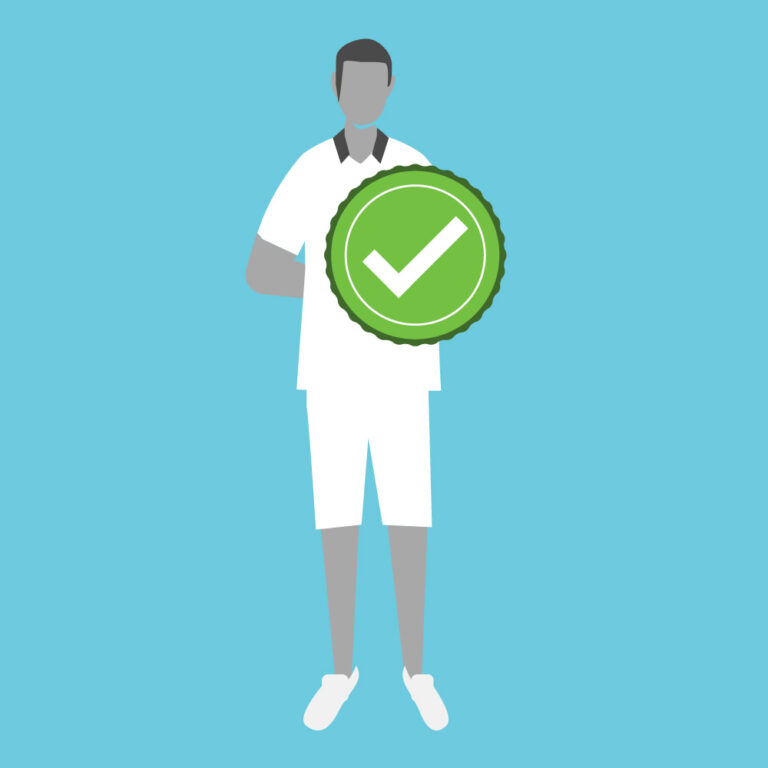
Give yourself the best chance of success
Given how important a valid medical certificate is for your career, it’s important you keep yourself in the best shape you can to pass any medical exam you’re required to take.
The natural fitness of youth will carry you a long way, provided you are still in that category. But as you get older and, importantly, as your career progresses and you move away from physical jobs to more desk-bound jobs, you’ll need to work that bit harder to keep on top of your physical condition.
Not only that, those seemingly small medical conditions that you’ve carried with you for several years now, may come home to roost. Especially if they are the kind of conditions that are made worse by stress, lack of exercise and a bad diet.
Look, we’re not here to nanny you. You know the drill. Ultimately, your lifestyle will determine your success during a medical examination, along with your career prospects.
Regular health checks are good
Regular medicals are part and parcel of the mariner’s life, whether you like it or not.
Regulators insist on them for health and safety reasons.
Yacht owners and operators want them because it ensures their employees are up to scratch and won’t cost them a packet due to an unforeseen medical emergency or inability to perform properly.
And you want them because health screenings are a vital part of living a healthy life. Trust us, catching a health problem early isn’t just cheaper than having to deal with it later, it could be the difference between it being treated successfully or not being treated at all. That in turn could spell the difference between living and…
By the way, regular medical reviews are only one side of the coin. The flipside is being able to deal with any issues that might arise. If you fail your medical, chances are you’ll be looking at a period on the sidelines and possibly medical treatment. And even if you pass, a medical certificate doesn’t make you immune to illness at some point in the future.
ou pass, a medical certificate doesn’t make you immune to illness at some point in the future.
That’s why keeping tabs on your health goes hand in glove with having the right protections in place for unexpected medical situations: healthcare cover and income replacement insurance. We can’t provide you with a medical certificate, but we can help you with insurance.




